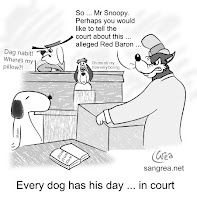
On June 11, a federal district court ruled that sales of promotional CDs did not constitute a copyright violation. Record labels have typically always tagged promotional copies of recordings "promotional use—not for resale." Often times promo copies have bonus tracks that are not on retail recordings, and they might use different art, etc. Interestingly enough, these promo CDs are considered hot collectibles by some people. This is something that anyone looking for a job in the music recording industry might want to understand.
One collector, named Troy Augusto, looked for these precious promo copies in flea markets and offbeat retail stores, then started to offer them for sale on eBay. But the Universal Music Group (UMG) copyright cops found out, then tried to have his auctions de-listed by using what is known as the Digital Millennium Copyright Act (DMCA), and when that didn't work, they sued him in federal court.
The music industry believes that the "not for resale" stickers means that UMG owns the CDs, which makes it unlawful for them to be sold. At first they argued that the doctrine of first sale could not be voided by adding a label to the merchandise. The court rejected UMG's argument that the label constituted a "license." Licensing means the owner can regain possession, which does not exist in the mass distribution of promotional copies.
The court ruled that promotional CDs were gifts, and since they were distributed without requiring any recurring action—they were sent in hopes of coverage, with no guarantees.
Meanwhile, a law called the Postal Reorganization Act prohibits mailing unordered merchandise without the prior concent of the recipient, and once received, merchandise "may be treated as a gift by the recipient, who shall have the right to retain, use, discard, or dispose of it in any manner he sees fit without obligation whatsoever to the sender."
So in the end, the court rejected Augusto's contention that UMG had "abandoned" the promo CDs, but it also upheld his first sale doctrine rights to possess and resell the CDs. The bottom line is that the California court rejected the music industry's promo CD copyright claim.
The bottom line is that if you have always wanted a job as a music producer or a recording studio engineer, now you know that if you get a promotional CD, it's yours to do with as you wish. This could also mean that if you have a band and want to make a demo CD and give it away... you can.
By the way, our Recording Connection school prepares you like no other music or recording school. You will learn more - like the above laws being decided in the music industry - while you apprentice under the direct supervision of a music industry professional in a real recording studio.






No comments:
Post a Comment